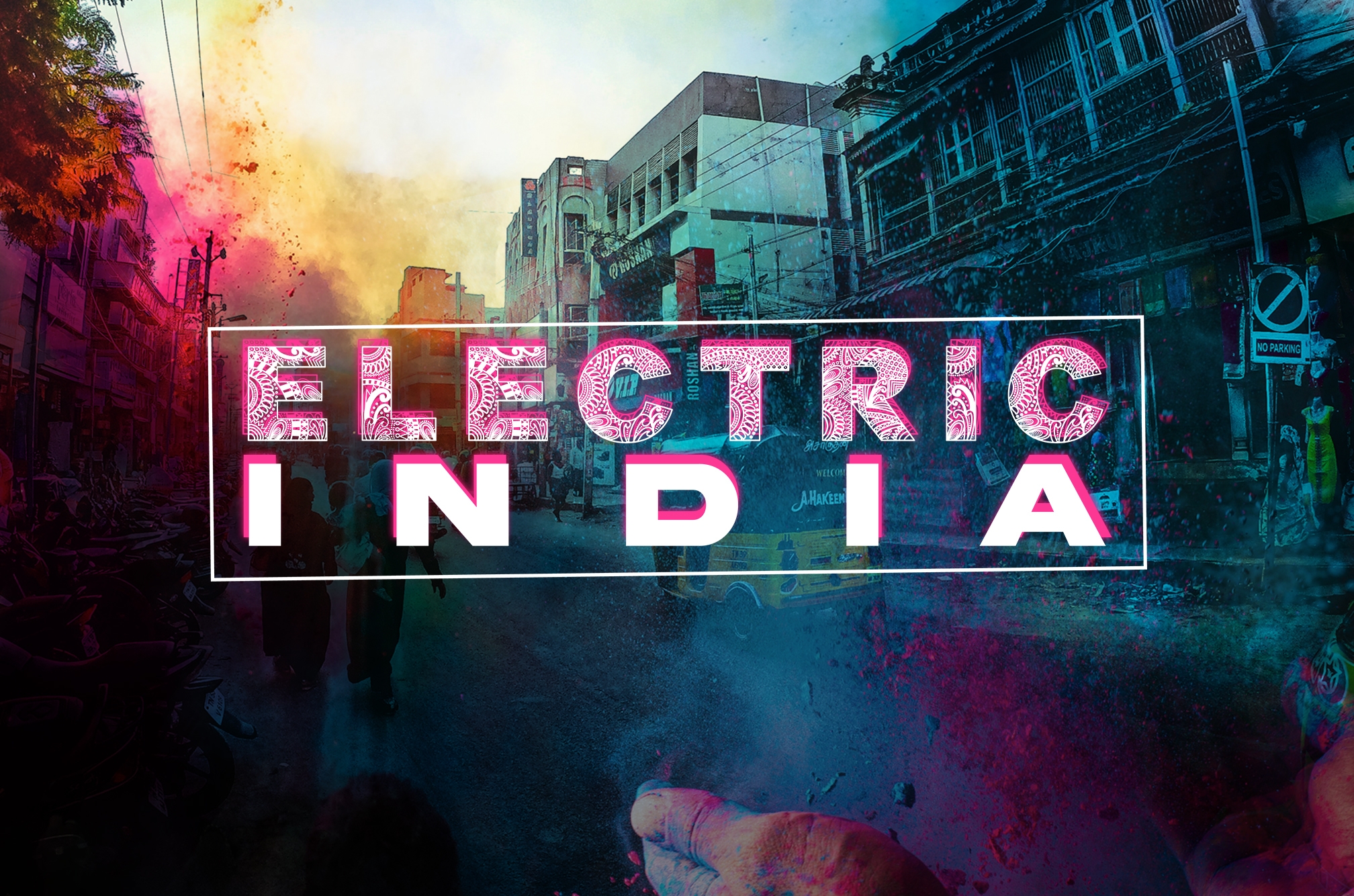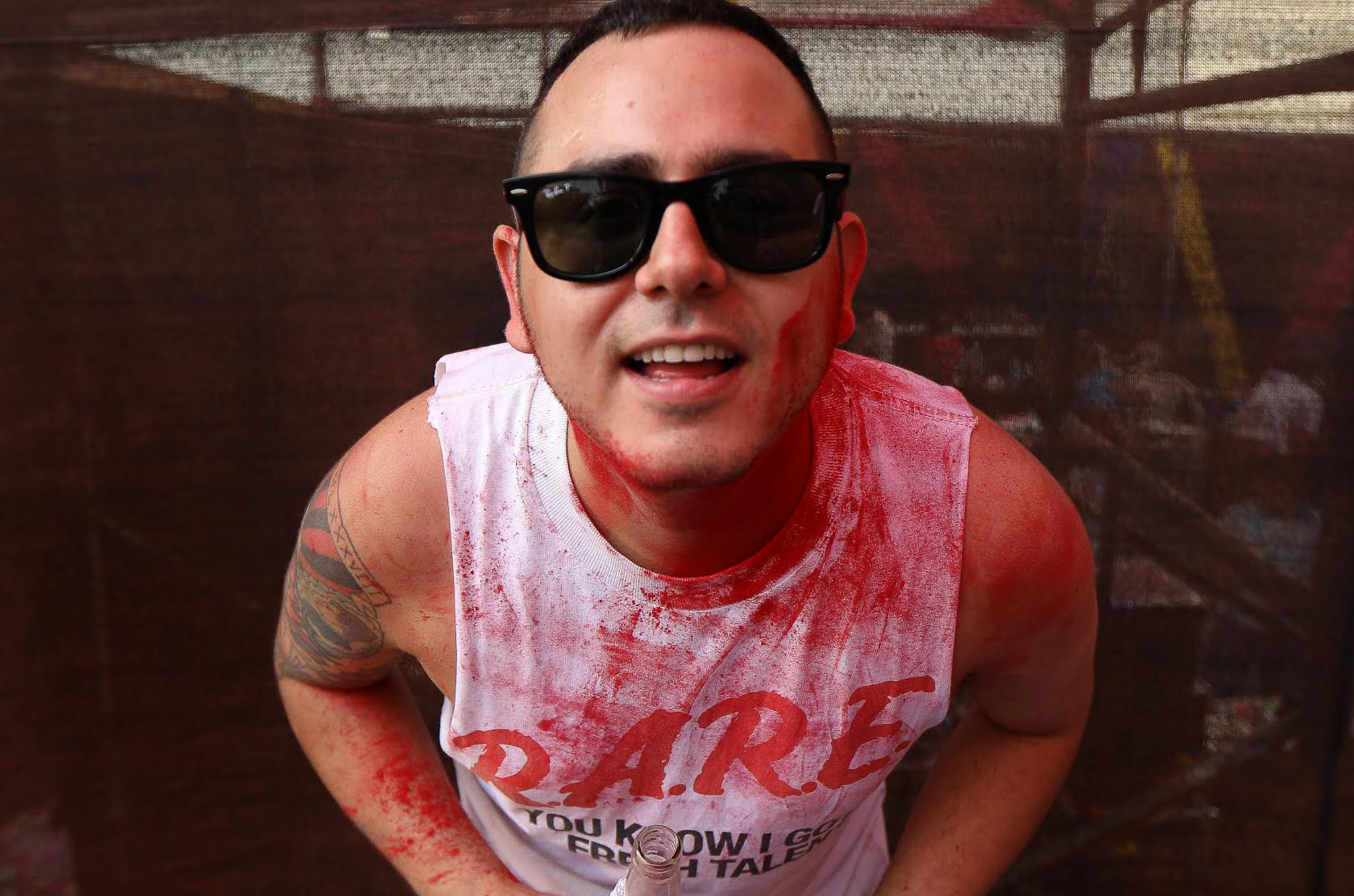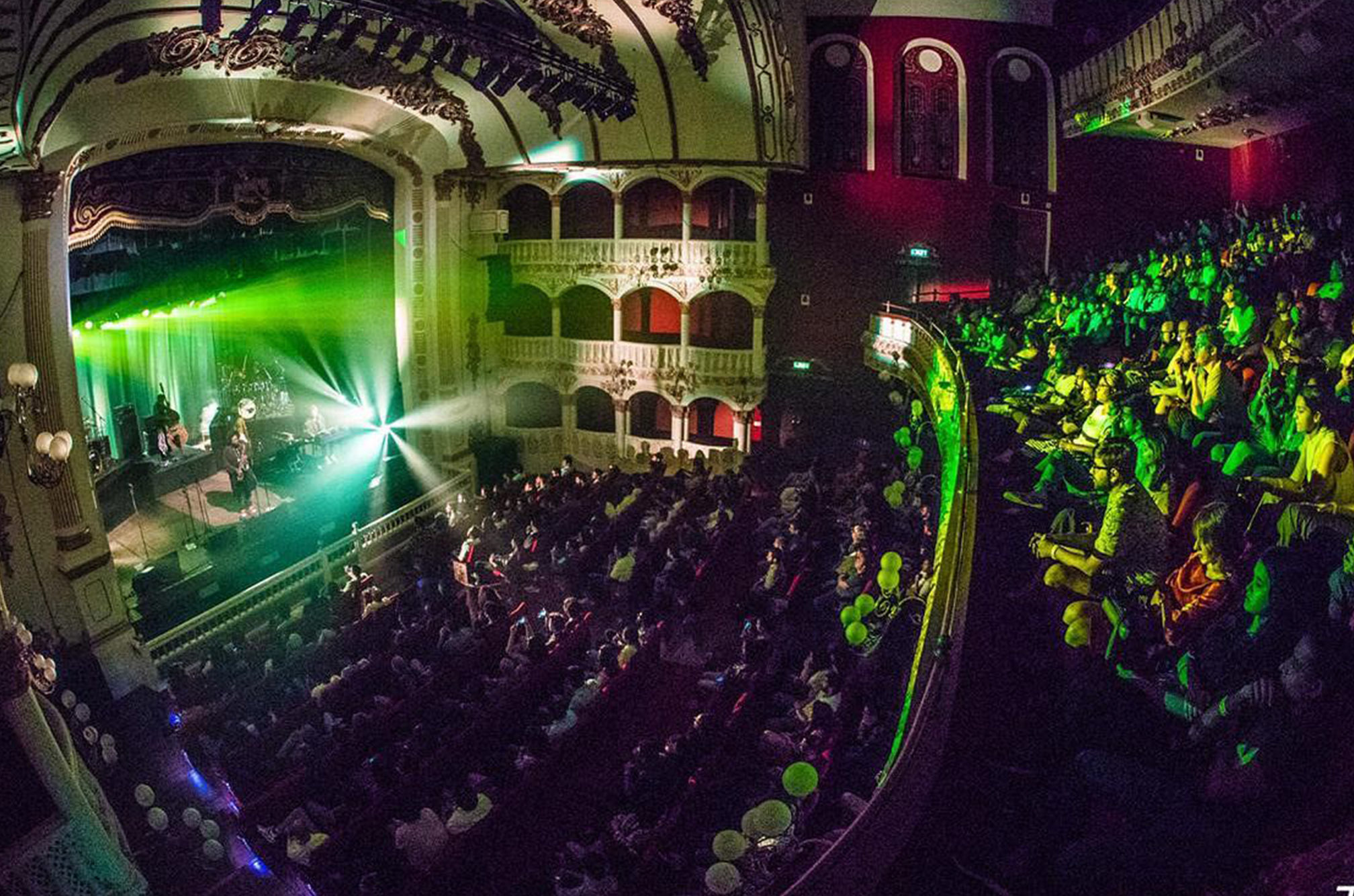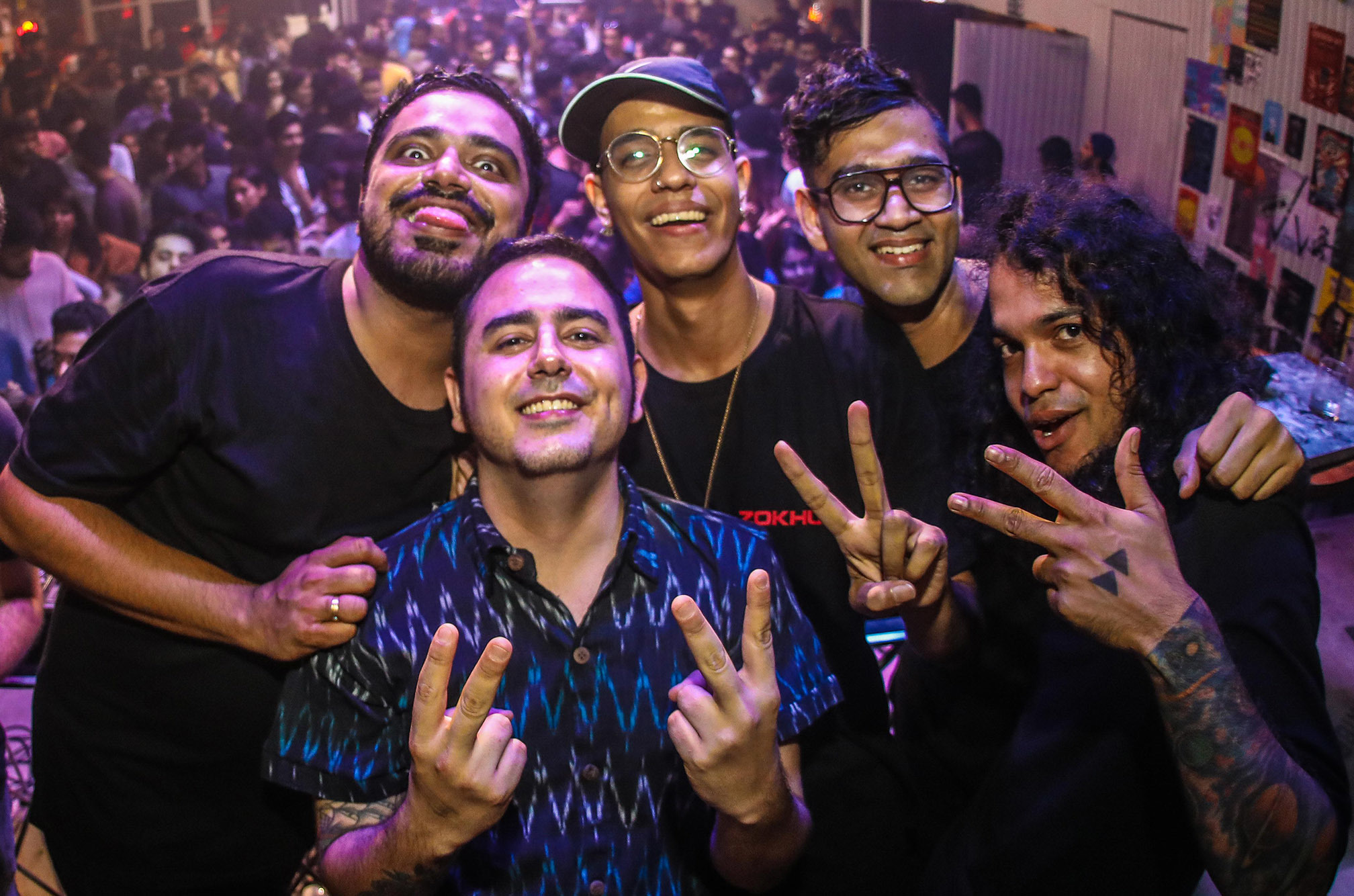 Features
Features
Electric India: When the mainstream bubble burst in India, Tej Brar was front & centre
"Dancing and celebrating is in our blood"
Electric India is a new monthly feature that explores what’s bubbling in and around South Asia – from the real players in the electronic music game. From new releases to festivals to club culture and trending artists, we go deep inside the scene and provide a monthly snapshot of the latest currents in India. From homegrown techno to imported festivals and secret parties, the music diaspora of India is so culturally unique that it deserves its own attention.
From DJs, artists and producers, their managers, festival promoters, labels, venues and other driving forces, we tap the seen and unseen from a variety of electronic and dance scenes across the country. Every city and area has its own culture and approach to music culture, some are further ahead than others — so join us as we try to figure out why they are intriguingly different and what makes them so relevant.
This month we caught up with one of the big dogs of the Indian electronic dance music game, Tej Brar. In fact, he’s so connected and wears so many hats, that we thought it best if we let him describe himself…
Tej, it’s great to link up again. For our readers who may not be familiar with your background, can you explain a bit about your place in the rise of electronic music and bass culture in India?
“Absolutely. Well, I moved back to India in 2011 after living in the US for about 10 years (DC, Boston and LA). When I got back here, the independent music scene was at a very nascent stage with only a handful of venues willing to program left-of-centre electronic artists. I first started out managing a small 150-cap venue in New Delhi called TLR Café which was sort of ground zero for independent acts in the city, this is where I really cut my teeth working with artists. From there I moved on to be part of the programming team at the iconic Blue Frog, which had then just opened their New Delhi outlet. Simultaneously, I had been working on the 2011 and 2012 editions of the Bacardi Nh7 Weekender festival, stage managing the Dub Station stage which featured a nice mix of hip-hop, dubstep, dancehall and reggae. In January 2013, I was hired by OML Entertainment (the parent company of the Bacardi Nh7 Weekender) to join them as a full-time artist manager. I worked there for four years, eventually heading their artist management team before leaving in 2017 to establish Third Culture Entertainment. Over the years I’ve had the privilege of working with and managing a lot of the top electronic talent in the country including Nucleya, Dualist Inquiry, BLOT!, Sandunes, Zokhuma and many more. It’s been really rewarding to see these artists grow professionally along with their audiences expanding year-on-year.”

Having been a part of the meteoric rise of bass culture and dance music, plus festival culture in India, where do you see things now – pre and post COVID?
“I think that’s really the travesty of the whole coronavirus pandemic. Right before the lockdown in India our electronic scene was truly thriving. We had a very healthy club scene where on any given night in the major metros you would have four to five different parties to choose from, spanning genres. There were new promoters popping up, an assortment of venues willing to try new acts and about 12 to 15 different international artists coming down to tour monthly. There were still a lot of government and police restrictions that we had to function under but it really felt like we were on the precipice of being an internationally viable touring market along with having great audiences for our domestic acts. I think it’s going to take quite a while for us to get back to that point, but we certainly will eventually. Post COVID-19, I think we’re going to see the restaurants come back first, followed by bars, then nightclubs and large format events will be last. It’s not all bad though, we have such incredible domestic talent that I’m quite looking forward to programming all local lineups once we get back to having gigs. They’ll be smaller and more intimate, but perhaps that’s a good thing to really strengthen our roots.”
Is the Indian EDM scene shifting now, and if so to what genres?
“It’s definitely evolving quite rapidly. Indian EDM aka Desi Bass has become a genre unto itself with artists like Nucleya, Ritviz and Su Real leading the charge. There are so many young producers now emulating their sounds marrying Indian instrumentation and vocals with EDM hallmarks like big drops and dirty bass lines. I think what is most exciting though is watching the audience's taste evolve. A lot of kids first got into EDM in 2010-2013 as an alternative to Bollywood. Artists like Afrojack, David Guetta, Steve Aoki and Martin Garrix had massive followings here in India. What we’re seeing now is that a lot of those kids who first found EDM as an alternative to Bollywood are now finding different underground genres as an alternative to mainstream EDM. The kids that were listening to those artists have now matured and grown into adults and they’re now seeking something a little bit deeper from their music. Essentially mainstream EDM served as an incredible gateway for the youth in India to now go on and discover the whole gamut of electronic sub-genres. Over the last few years the techno scene has grown immensely and more recently there’s been a marked rise in the popularity of breakbeats and electro, mostly thanks to some relentless promoters and DJs who truly love the music and want to share it with people.”
There are some great homegrown festivals like Sunburn that are well-established, what else should be on our festival radar?
“Oh for sure, Sunburn has done so much to establish electronic music here in India. Most people think of them as a mainstream EDM festival, which they totally are but they have also booked a lot of incredible underground talent over the years across genres. This is important to note because for a lot of Indian kids Sunburn is their first experience of electronic music. Other festivals that I think are incredible and worth checking out are Magnetic Fields Festival — which takes place in a 17th-century palace turned hotel in Rajasthan — Echoes of Earth Festival, Bass Camp Festival, Terminal 1 and Disrupt. All of these festivals are at the forefront of pushing electronic music here in India. Last year we established Neon East Fest in Mumbai to showcase some alternative sounds that we felt other promoters weren’t really looking at. The festival was headlined by Mura Masa alongside performances by Little Dragon, Mr. Carmack, Andre Power and Photay.“
Do you think the major international festival brands like EDC, Creamfields and Ultra will ever take root in India the way they have in China, Japan and Korea?
“EDC came down and did EDC India in 2016. I think it may have been a little late as there was a lot of competition in the mainstream EDM festival space already at the time (Sunburn, Vh1 Supersonic, EVC). I don’t know if it’s financially worth it for Indian promoters to license such massive brand names and try to recover their investment from an audience that is notoriously hard to sell tickets to. The license fee, massive headliners, international shipping for the props/stages turn into a huge financial burden for the promoter. Our whole live event industry relies on corporate sponsorship in order to underwrite the cost of the event as tickets cannot be priced very high here in India due to spending power of the target audience — essentially students and young professionals. So it’s really a matter of economics. There are some promoters who have done this really well in the underground space though, for example, Slick! who partnered with DGTL to do an edition in Bengaluru last year, which I heard was pretty incredible.“

Your background is managing electronic artists. Are you expanding into other genres now with Third Culture?
“Yes, definitely. While electronic music has made up almost the entirety of my career so far, with Third Culture it’s been incredibly rewarding to explore other genres both as a manager and as a promoter. As a management company we’ve moved into hip hop with Raja Kumari, jazz with Sarathy Korwar and lo-fi indie/shoegaze/just pretty songs with JBabe. Working with these artists has been great because I don’t listen exclusively to electronic music, in fact as I get older I’m starting to drift away from it a little, so these artists really fulfil me creatively. As a promoter, we’re certainly showcasing artists outside of the electronic spectrum. My highlight of last year was hosting Kamasi Washington (with his full band) at the Royal Opera House in Mumbai.”
The rise of hip hop in India has been breathtaking ever since the breakout of DIVINE, Naezy and the Bollywood hit film Gullyboy — do you think rap will become as big on the festival scene as EDM in the future?
“It already has. With the success of Gullyboy and the wave of homegrown Indian rappers now enjoying immense popularity, there is no question hip-hop is going to eclipse electronic music as festival headliner material. I think hip hop overall as a genre is going to be way bigger than electronic music in India for a couple of different reasons. First, it’s narrative. Everyone wants to tell their story. Second, it lends itself well to the different languages within India. Hip hop is essentially an instrumental (beats) with words (rhyme) on top of it — now those words could be in Hindi, Punjabi, Tamil, Kannada, Marathi and so many other languages from across India. What we’ve seen is an explosion in regional hip-hop scenes around the country and this is just the beginning. Hip hop in India is here to stay, both on the festival circuit and as a lifestyle.”
How has the COVID 19 pandemic changed the way you present and promote your artists? What platforms are you finding work best in India?
“We’ve had no choice but to adapt to the new circumstances we find ourselves in with COVID. While our live events business has come to a complete halt, as an artist management company we’ve had to remain extremely flexible and pivot as the situation evolves. I think now more than ever, artists are having to rely on their reach, not as musicians and performers, but rather social media influencers to earn a living. Of course, that doesn’t work for all artists but for those who do have a sizeable following on social media — there is money to be made. Brands still have marketing budgets that need to be spent and as management, it’s our responsibility to go out there and close those deals. There’s also been a big difference in how we release content. For example, we dropped a single ‘N.R.I’ with Raja Kumari and she went on a ‘worldwide tour’ of Instagram with different media outlets across countries to promote it. It’s definitely forced us to innovate and look at new ways to engage with an artist’s audience. A lot of artists are using this time to write new material, explore collaborations and finish long-pending projects. We’ve got a ton of content ready to roll out as and when things start to normalise."
What do you think will happen with the Indian outdoor festival scene post-COVID? Will 10,000 closely packed people ever jump around in a field again? What might the alternatives be?
“This is totally going to happen, it’s just a question of when. If you have ever seen any cultural Indian festivals like Holi or Diwali or even a big fat Indian wedding – you know that dancing and celebrating is in our blood. It will absolutely come back. I think we’ll see a bit of a slow burn with bars and clubs first before any outdoor events, but I don’t think drive-in concerts or socially distanced festivals are really going to take off here. There will definitely be capacity limitations imposed on live events along with strict health and safety guidelines (temp checks, face masks, sanitiser dispensers) but as promoters, we’ll be more than happy to comply as we know it’s the first step in a long road to recovery.”

Managing South Asian musical artists has become big business in the past few years. Do you see them breaking out of India and succeeding on the world stage? Who do you think are particularly poised to do this?
“Totally. I think ‘Eastern’ sounding melodies have taken off in a big way – just look at DJ Snake for example. The level of talent we have here in India is incredible. With the democratisation of audio production software and the proliferation of the internet, it’s just a matter of time before we have an Indian electronic superstar on the world stage. There are so many kids making incredible music across the country. We’ve already seen some artists begin to take steps outside of India with Nucleya performing at EDC Mexico and Las Vegas, Singapore, Dubai and more and Arjun Vagale and BLOT! playing at Awakenings festival in Amsterdam. Indie singer-songwriter Prateek Kuhad even made it onto Barack Obama’s playlist last year. I think this is just the tip of the iceberg though and there will be many more to follow suit.”
Thanks, Tej, it’s really been great getting your insights.
Finally, as an encore: Bollywood is always the 900-pound gorilla in the room. Do you think the success of dance music has impacted Bollywood in any significant way? (not counting the Bollywood remix phenomena). Any Bollywood tracks you can point to that are clearly EDM or bass influenced?
“Oh totally. I think a lot of the big Bollywood dance numbers in the last few years have drawn inspiration from the likes of Nucleya and Ritviz, particularly when you look at their arrangements and the feature of a ‘drop’. It’s just inevitable. That sound is super high energy and Indians across the diaspora immediately identify with it. I think just like any industry Bollywood has to continue to evolve to remain engaged with their audience. As EDM hit and young people gravitated towards it, Bollywood picked up on that and adapted accordingly. I’ll refrain from pointing out particular examples, but suffice to say there are plenty.”
And finally: Please name 5 Big tracks from the subcontinent that our readers should know about.


